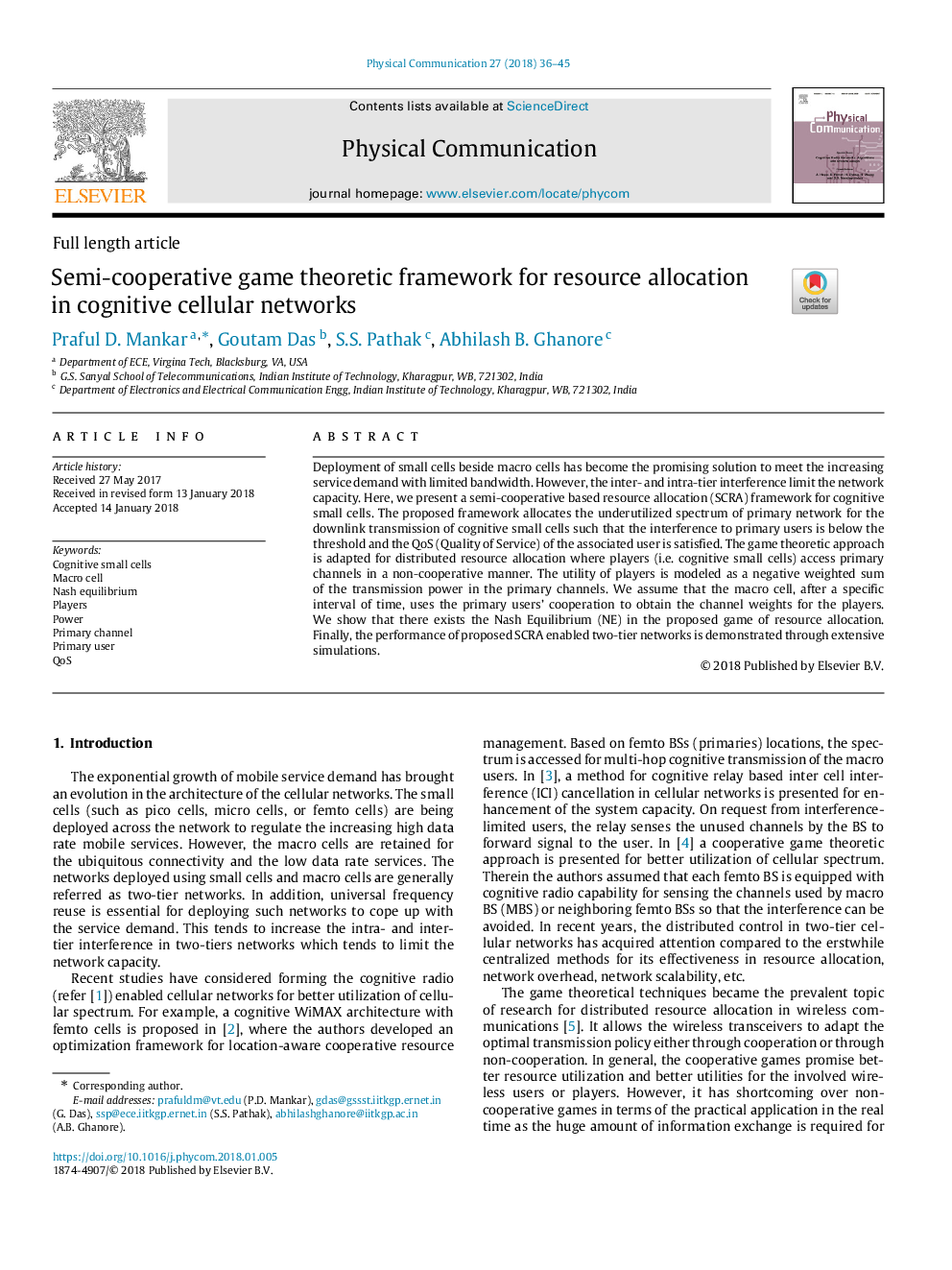| Article ID | Journal | Published Year | Pages | File Type |
|---|---|---|---|---|
| 6889086 | Physical Communication | 2018 | 10 Pages |
Abstract
Deployment of small cells beside macro cells has become the promising solution to meet the increasing service demand with limited bandwidth. However, the inter- and intra-tier interference limit the network capacity. Here, we present a semi-cooperative based resource allocation (SCRA) framework for cognitive small cells. The proposed framework allocates the underutilized spectrum of primary network for the downlink transmission of cognitive small cells such that the interference to primary users is below the threshold and the QoS (Quality of Service) of the associated user is satisfied. The game theoretic approach is adapted for distributed resource allocation where players (i.e. cognitive small cells) access primary channels in a non-cooperative manner. The utility of players is modeled as a negative weighted sum of the transmission power in the primary channels. We assume that the macro cell, after a specific interval of time, uses the primary users' cooperation to obtain the channel weights for the players. We show that there exists the Nash Equilibrium (NE) in the proposed game of resource allocation. Finally, the performance of proposed SCRA enabled two-tier networks is demonstrated through extensive simulations.
Related Topics
Physical Sciences and Engineering
Computer Science
Computer Networks and Communications
Authors
Praful D. Mankar, Goutam Das, S.S. Pathak, Abhilash B. Ghanore,
